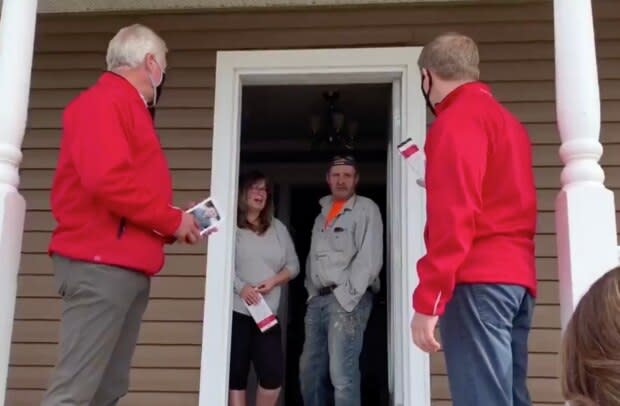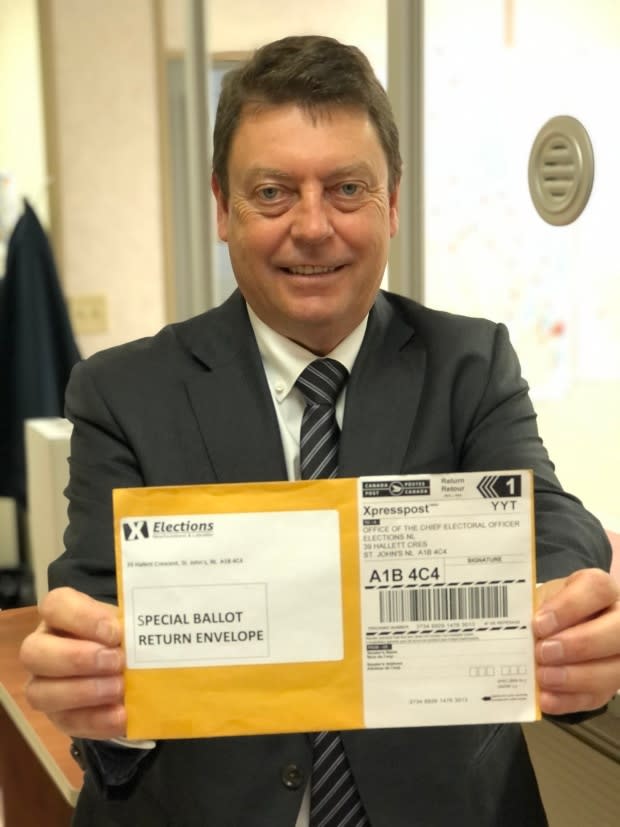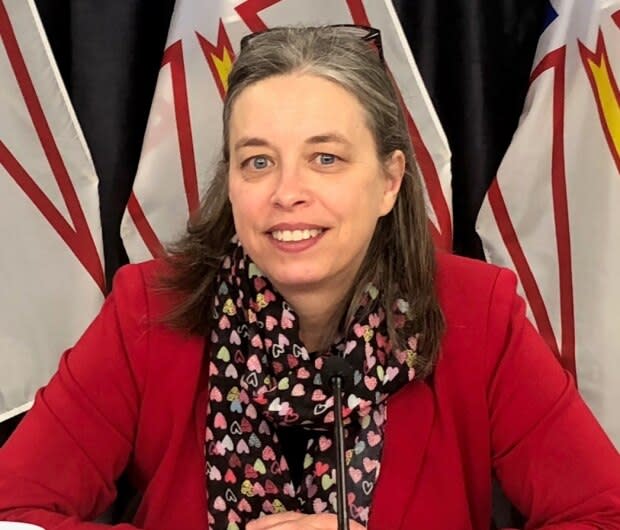How can voting work in a pandemic? We're finding out in 2 byelections

It's election season for parts of Newfoundland and Labrador, and the COVID-19 pandemic is changing things, from how candidates can work the campaign trail to how voters make their choices at the ballot box.
On the west coast of Newfoundland, Premier Andrew Furey is among the candidates in the Oct. 6 byelection in Humber-Gros Morne. Furey needs the win in order to obtain a seat in the House of Assembly as the province's leader.
Campaigning activity in the district prompted questions for Chief Medical Officer of Health Dr. Janice Fitzgerald during the COVID-19 media briefing on Wednesday.
Fitzgerald said it is all right for candidates and canvassers to be out campaigning — so long as they respect physical distancing guidelines.
"Certainly we would recommend that you maintain physical distancing at all times. If you're not going to be able to do that and you're in public places, in public buildings, [then] you wear masks. That sort of thing," Fitzgerald said.
"[It's] all the same advice that we've been giving all along, and have precautions about handing out information and things like that."
Also running are NDP candidate Graham Downey-Sutton, PC candidate Mike Goosney, and Graydon Pelley, the leader of the N.L. Alliance. The N.L. Alliance currently does not have a seat in the provincial legislature.
The byelection was triggered when former premier Dwight Ball stepped down as MHA in September.
Door-to-door activity has been frowned upon
Fitzgerald's comments on Wednesday, though, do not align with stricter guidance that the Department of Health and Community Services has provided in the past about door-to-door activities.
In August, the City of St. John's asked the government for guidance on canvassing as it prepared for the Oct. 20 byelection in Ward 2, to fill a vacancy left after former councillor Hope Jamieson stepped down this summer.

The province's response, dated Aug. 28 said, "Individuals should not be engaging in door-to-door activities. Individuals participating in door-to-door activities are likely to come in close contact with a large number of people, which is not keeping with the principles of social distancing."
According to that memo, "Individuals should be limiting the number of people they come in contact with, and when they are in contact with others, should remain six feet apart."
More recently, however, the Department of Health says things have changed since August, and the response given to the city was based on information available at the time.
"The public health advice has since been updated and the comments made by Dr. Fitzgerald during this week's media briefing are accurate," the department said in a statement to CBC News on Saturday.
Current public health advice for candidates means wearing a non-medical mask for the duration of door-to-door campaigning, avoiding physical contact such as shaking hands, washing hands before and after contact with each household and physical distancing.
Ballot box changes
For those casting a ballot this year, Bruce Chaulk, chief electoral officer of Elections Newfoundland and Labrador, said many things will look the same come byelection day in Humber-Gros Morne, but others will be slightly slightly different.
"The legislation hasn't changed, so we have to follow certain procedures that have to be in place for the election," he said.
Chaulk said there will likely be somebody on the door at polling stations to make sure physical distancing is being followed, along with stickers on the floor to show voters where to stand instead of long and crowded lineups.

He said another person will have a job solely to sanitize high-touch surfaces around the polling station throughout the day.
Everyone inside, he said, must wear a mask or a face shield.
At the poll itself, the person in charge of handing out ballots to voters will still ask for a name, but won't ask people to remove their masks, said Chaulk.
Voters will then be given a pencil, to keep instead of sharing, before stepping behind the curtain. Afterward the chief returning officer will take off the counter foil and drop it in the ballot box.
Chaulk said one of the biggest challenges, particularly in rural areas of the province, is finding polling locations that are large enough to give voters enough space to spread apart.
"So we have a lot more polling locations. No additional polls, but additional polling locations," he said.
"So if before we had four polls in a particular location, and now to keep everything distanced we can only put two there, then we'll only have two there."

Mail-in ballots are still available through express post, Chaulk said. The deadline to apply for a special ballot kit is next Tuesday at 6 p.m.
"I think given our low prevalence at the moment there are measures that can be put in place to make this safe," he said in an interview with Here & Now.
As for moving things online, Chaulk said it would be a lengthy process and would involve changes in legislation. If that were a route the province were to take, Chaulk said it wouldn't be ready for the upcoming general election to be held at some point in the next year, and likely not ready for the one after that — potentially in four years.
Fitzgerald said steps can be taken to make elections safe, some of which were outlined by Chaulk.
"Given our prevalence at the moment, there are measures that can be put in place to make this safe. A lot of the same precautions that many of the retail stores have put in place can be put in place with regard to physical distancing, waiting in line, that sort of thing," she said.
"Mail-in ballots are certainly helpful in that regard as well."
Read more articles from CBC Newfoundland and Labrador


